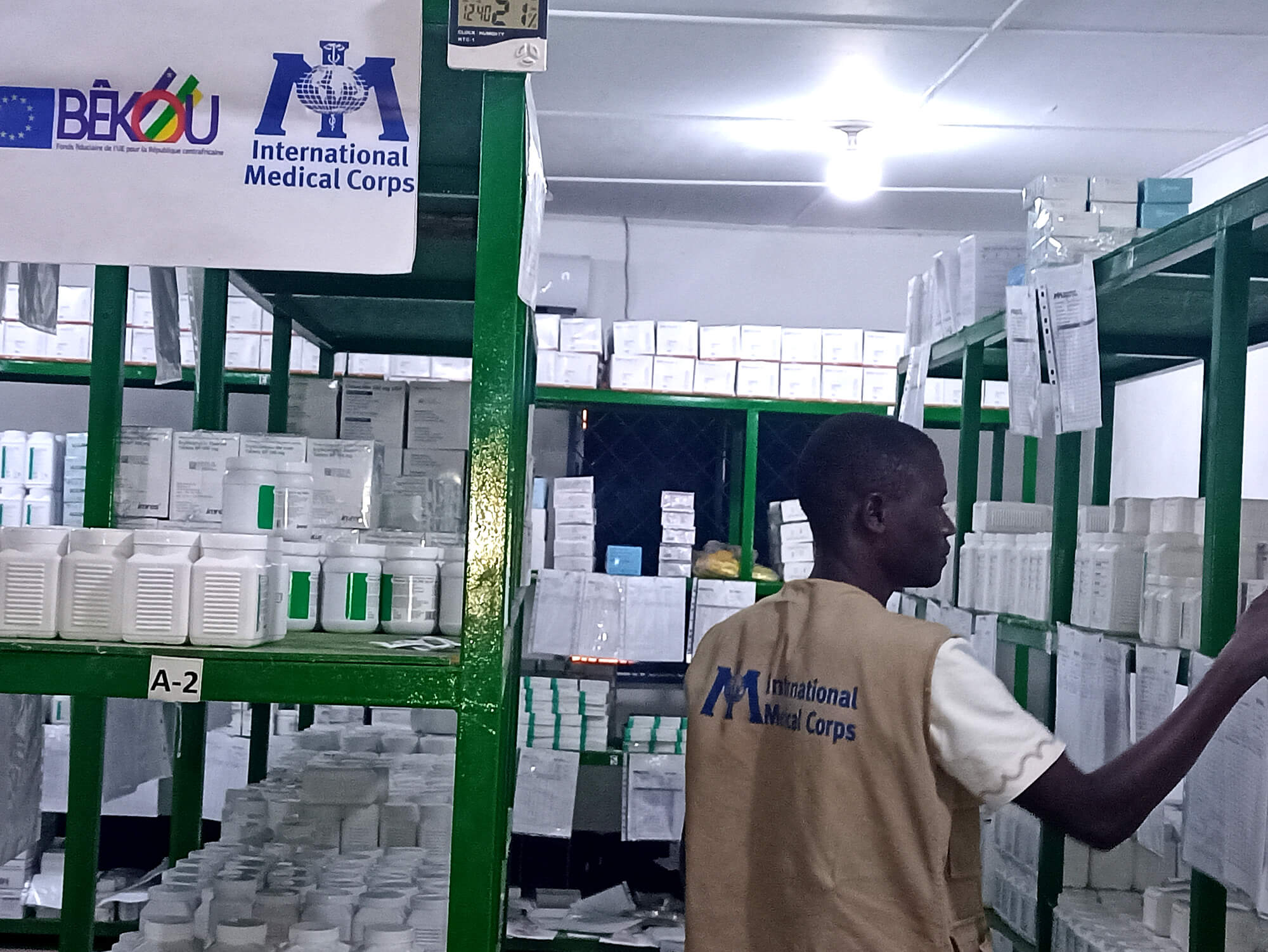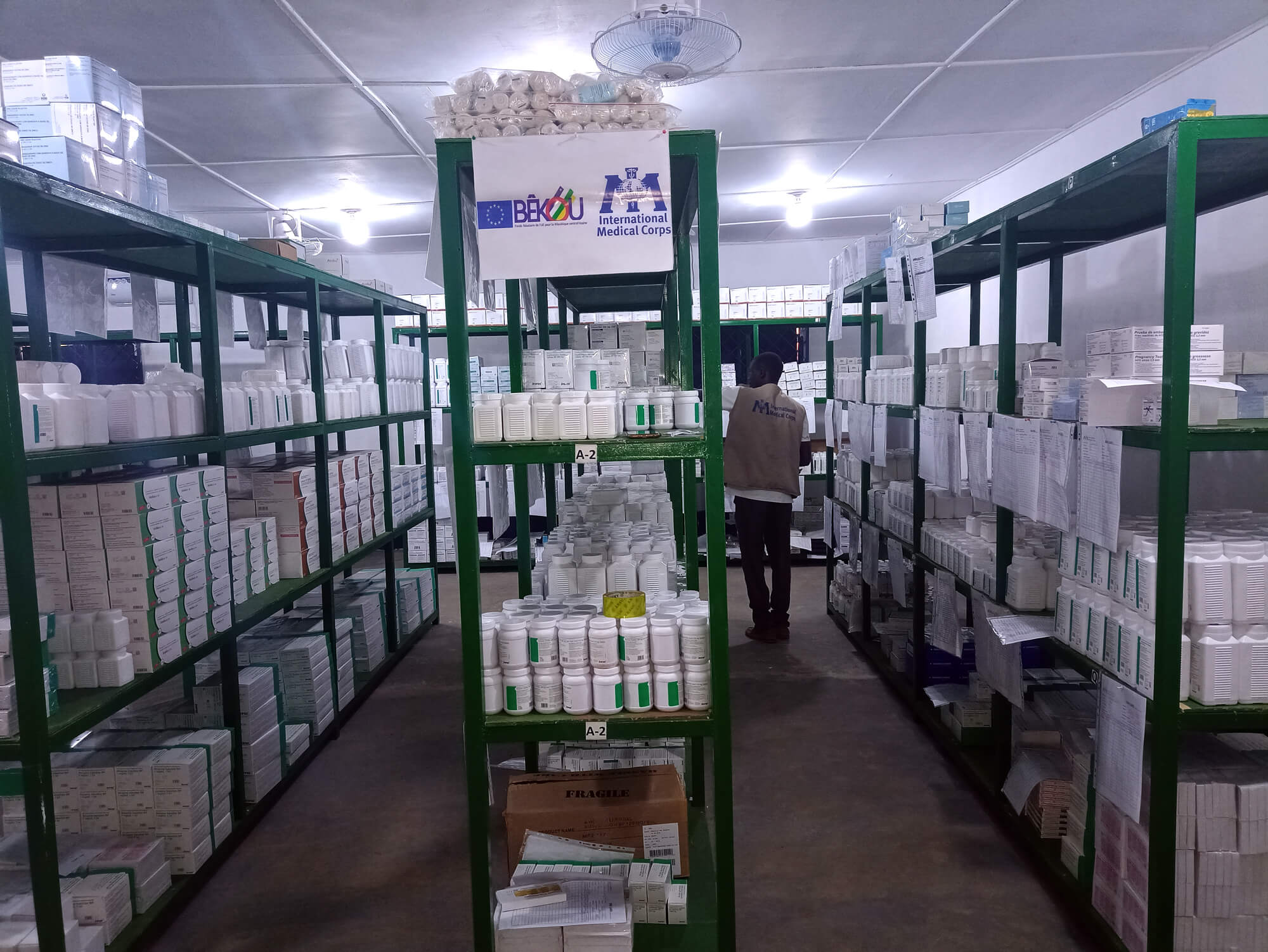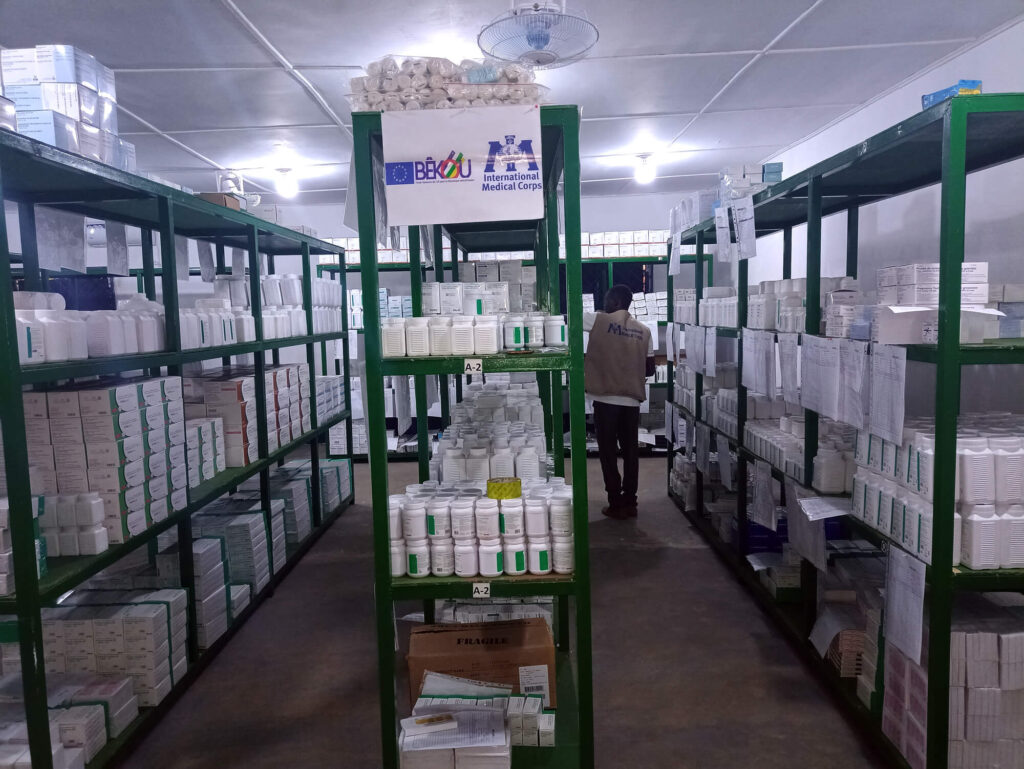To speed up the time it takes to get a hold of medical commodities, our Global Logistics and Supply Chain team developed a new process called MEDCOM to reduce the time it takes to process procurement requests—and ensure that our country teams have the supplies they need as quickly as possible. During 2022, we processed 75 work orders using MEDCOM, reducing delivery timelines by 23%, to an average of 22 days.
International Medical Corps has signed blanket purchase agreements (BPAs) with four major vendors that have been prequalified for the procurement of medical commodities—items such as pharmaceuticals, consumable medical supplies (gloves, masks, etc.) and durable medical equipment—by USAID’s Bureau of Humanitarian Assistance. These BPAs fix commodity prices for a certain period of time—typically a year.
When we need to procure medical commodities, we first go to our primary BPA vendor, to determine which commodities they have in stock or will have in stock soon. If the primary vendor is unable to supply us, we proceed to the secondary vendor and on down the list of vendors until we’ve found exactly what we need.

Until recently, if a country team needed medical commodities, they would fill out a work order that our Global Procurement team would then send to the primary vendor for quotation. It could then take up to four days for the vendor to provide us with an offer for items they either had in stock or would have soon.
Once the primary BPA vendor’s offer arrived, it could take Procurement a few additional days to analyse the offer and to ask the country making the request which items they should buy from the primary vendor—and which items to look for elsewhere. Based on the answer, Procurement would put in a request with the primary vendor and start the process over again with the other vendors, in order, for the items that the primary BPA vendor could not provide.
This administrative process often took quite a long time—up to four weeks until vendors start packing and prepare for shipping. Sometimes, items that had been available just days before would sell out, requiring us to readjust procurement documentation—which would add several additional days to the process before the final order could be placed.
Solving Problems in Parallel
Because time is crucial when it comes to medical commodities, in late 2021 our Global Logistics and Supply Chain team created a new process known as MEDCOM. Under MEDCOM, the four BPA vendors provide a full list each day of all medical commodities that are in stock or will be in stock soon. This gives us insight into inventory. And because we negotiated non-committing stock reservations with the vendors, as soon we confirm with the vendors the items we need, all items from the list are automatically reserved for us for two weeks and cannot be sold to another buyer—giving us time to place the order.
Under the new process, a country team makes a request for medical commodities as early as possible after a project is approved. The regional logistics coordinator then organizes a kickoff call with the country’s logistics, the country medical or pharmaceutical staff and the Global Pharmaceutical Supply Unit staff. The teams check the stock statuses at the primary BPA vendor and fill out a work order for all the items available now or in the immediate future. For all remaining items, they check the secondary BPA vendor’s list and fill out a work order to procure any in-stock items. If the secondary vendor doesn’t have certain items in stock, they immediately look to the third and fourth vendors.
“If an item is not available with any of the four vendors, then we might consider accepting an alternative item—and this is why medical and pharmaceutical team members are present on the call to confirm whether the alternative item would or would not be acceptable,” says Global Procurement Manager Kristina Dvornik.
The Global Procurement team submits the work orders to the vendors, who reserve the items and start simultaneously working on the final offer, including shipping costs. Once International Medical Corps places the final orders, the vendors pack and ship the items.
The result? Under the new MEDCOM procedure, the procurement process takes as little as seven days.
“The difference between the old process and MEDCOM is that in the regular process, we are working linearly—finalising one part and one vendor, then moving to another,” Kristina says. “With MEDCOM, we are working in parallel, meaning that we are collecting everything quickly and simultaneously, limiting the risk of changes in stock status and the subsequent need to re-adjust the procurement document.”
A Proven Rise in Efficiency
In late 2021, the Central African Republic (CAR) mission began the first MEDCOM pilot to great effect. After the Global Procurement and country teams first met to develop a work order using the MEDCOM process, medical commodities were delivered to customs in Bangui, CAR, only 38 days later—a 60% reduction in delivery-procurement time.

“MEDCOM is really something that we needed as an organisation—especially for country missions, as we always are trying to speed up the time when it comes to starting an emergency response and immediately delivering services to beneficiaries,” says CAR Country Director Dr. Christian Mulamba. “MEDCOM is really making us very efficient.”
Because of MEDCOM’s success in CAR, International Medical Corps began rolling out the system in early 2022 to every mission that procures medical commodities.
